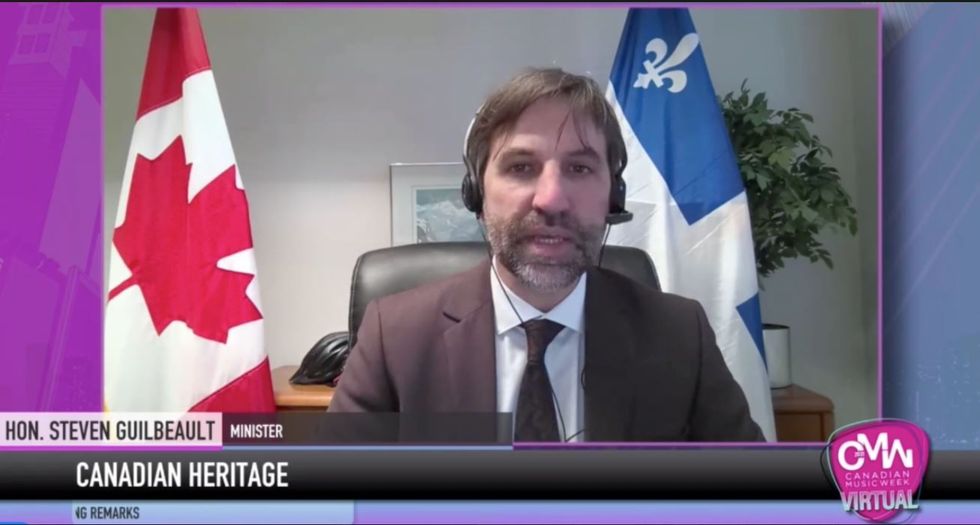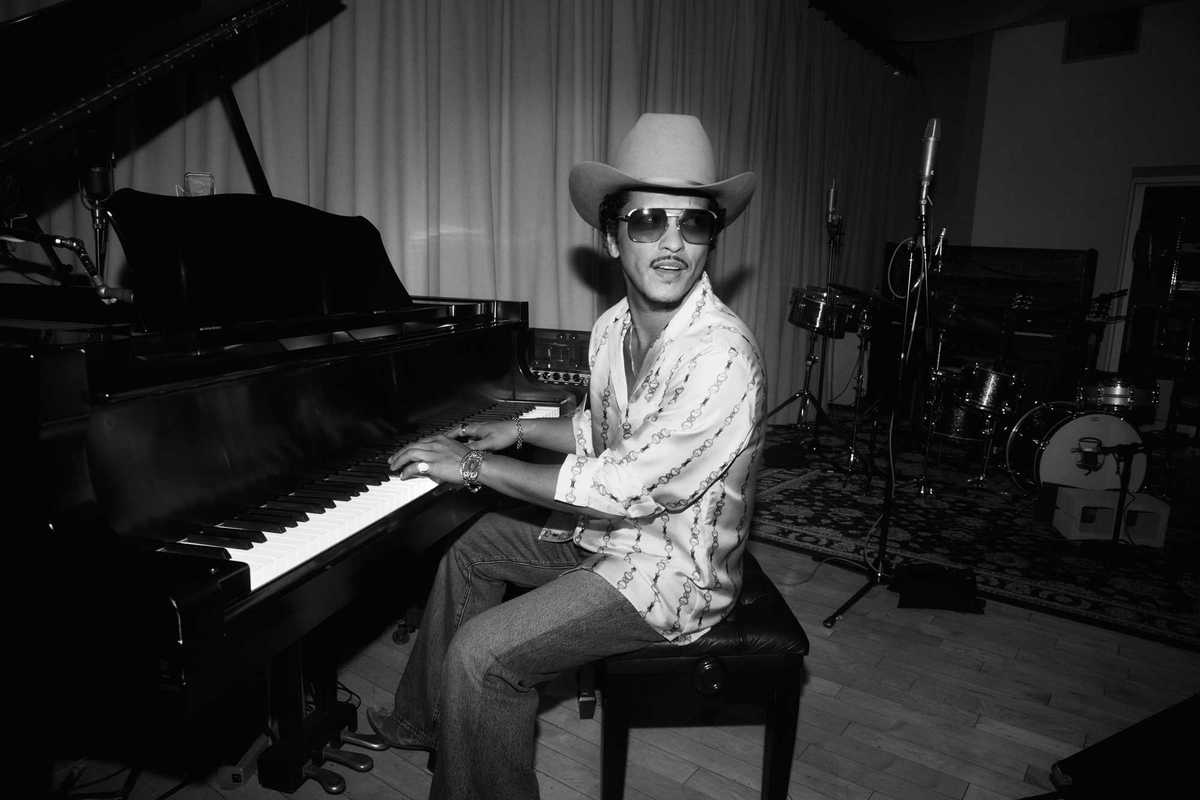Heritage Minister Brings Good News To Live Sector In CMW Keynote
Canadian Music Week president Neill Dixon and The Honourable Steven Guilbeault, Minister of Canadian Heritage, kicked off the 38th edition of CMW on Tuesday morning, May 18, with opening

By Karen Bliss
Canadian Music Week president Neill Dixon and The Honourable Steven Guilbeault, Minister of Canadian Heritage, kicked off the 38th edition of CMW on Tuesday morning, May 18, with opening remarks one after the other.
Dixon told delegates “switching to virtual has been a challenge, but through sheer will and hard work, we managed to put on an event comparable in size to our in-person version,” while the take away from Minister Guilbeault is the continued support for the industry, including the niche-issue of insurance premiums; he also urged the support of Bill C-10, the latest proposed amendment to the Broadcasting Act.
CMW Virtual, which runs until the 21st, includes 70 sessions with over 300 speakers — among them, Chris Blackwell, Debra Rathwell, Desmond Child, Dallas Austin, Timbaland, Nile Rodgers, Merck Mercuriadis, Wendy Ong, Carianne Marshall, Allen Kovac, Annabella Coldrick, Bob Lefsetz, Kevin Liles, Jennifer Mitchell, Michael Chugg, Buffy Sainte-Marie — and a free online music festival.
FYI Music News will have an overview next week.
“They said it couldn’t be done, but if last year has taught us anything it’s how to persevere,” said Dixon. “Canadian Music Week is the longest running conference and festival in North America. It’s one of the world’s most influential music events and one of the world’s most globally focused.
“This year the spotlight is on the Netherlands, both on the business side and creatively, via our nightly artist showcases, and in these tough times we’d like to express gratitude to our sponsors for sticking with us and sharing our belief in CMW future as a global event.”
Dixon thanked their sponsors, and various levels of governments, “who stepped up,” specifically naming FACTOR, Canadian Heritage, Global Affairs Canada, Ontario Creates, and Reconnect Ontario, “without them much of our sector might have had no hope of recovery.”
Introduced by Music Canada COO/Connect Music Licensing president Jackie Dean as “a champion for our community and a steadfast source of support for the industry,” Minister Guilbeault spoke from his hometown of Montreal, recapping what we all know: “that the pandemic has hit the Canadian music industry and Canada's live music sector particularly hard. And yet it has been our artists, our musicians and our creators that we've turned to help us get through these tough times.”
He recapped the federal government’s early financial aid as part of a $500 million Emergency Support Fund — which complemented the Canada Emergency Response Benefit (CERB) and the Canada Emergency Wage Subsidy (CEWS) — providing, through the Canada Music Fund “an unprecedented” $32.9 million to 876 Canadian music entrepreneurs and organizations, “including many types of companies in the live music world that do not normally receive funding from the CMF, such as music venues, booking agents, concert promoters, and for-profit festivals,” he said. “The funding helped to allow entrepreneurs and organizations maintain jobs and support business continuity.”
Guilbeault said that as the pandemic continued “it became clear that more support was needed for workers in the live sector, namely the lighting and sound technicians, crews, suppliers, and many others, whose behind the scene efforts make live events possible.
“To stimulate the employment of Canadian artists and cultural workers, we announced $40 million in new funding in our 2020 fall economic statement to support the planning and presentation of events and shows in response to the ongoing health restriction from Covid-19.”
Come the new year, Budget 2021 earmarked $50 million in new emergency funding for the live music sector through the CMF, and also “a significant investment in Canada's major and community festivals, community cultural events, and other cultural events.”
Demonstrating an even deeper understanding of the challenges facing the reopening of live venues, he said the Department of Canadian heritage “has also been monitoring how the lack of availability and affordability of insurance coverage is threatening Canada's music venues ability to operate.
“We are aware that insurance companies are either not renewing the insurance policies of music venues across Canada, or significantly increased their premiums. This reflects marketplace trends that were happening before the pandemic, but its impact is felt across the hospitality sectors in places where alcohol is served, including restaurants, nightclubs, bars, and live music venues. The audio-visual production industry is facing different challenges with changes in insurance coverage, contributing to production shutdowns.
“This is why the government extended an initiative to compensate for the lack of insurance coverage for Covid 19 later to filming interruptions and production shutdowns in the audio-visual production industry. We understand that for many live music venues, if their insurance policies are being renewed, it is at a higher premium for less coverage. That is why insurance was an eligible expense in the CMF emergency support funding and the support for live music event program.
“$50 million in new pandemic-related funding for Canada's life sector announced in Budget 2021 will continue to cover insurance premiums as an eligible expense. This will ensure that insurance expenses will not be a barrier for live music venues as they reopen.”
Guilbeault also reminded the delegates about Bill C-10, urging them to speak to their respective MPs to encourage the passing of the bill “that will modernize the broadcasting act and ensure that companies like YouTube also could contribute to our music sector.”
He capped his remarks by “expressing my sincere gratitude for your determination and for your innovative responses to the difficulty year we've had. I continue to be encouraged by your commitment to the sector.”

















